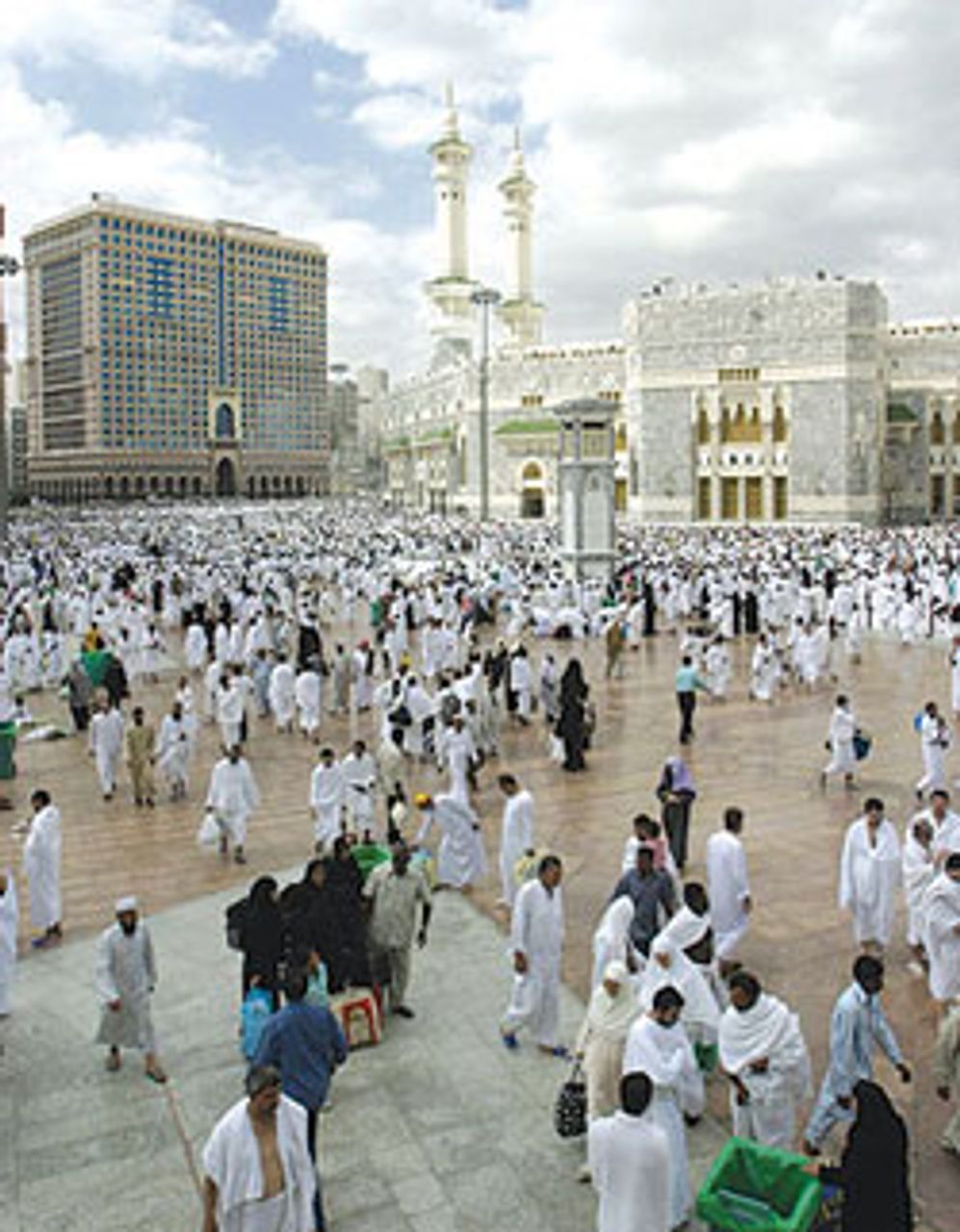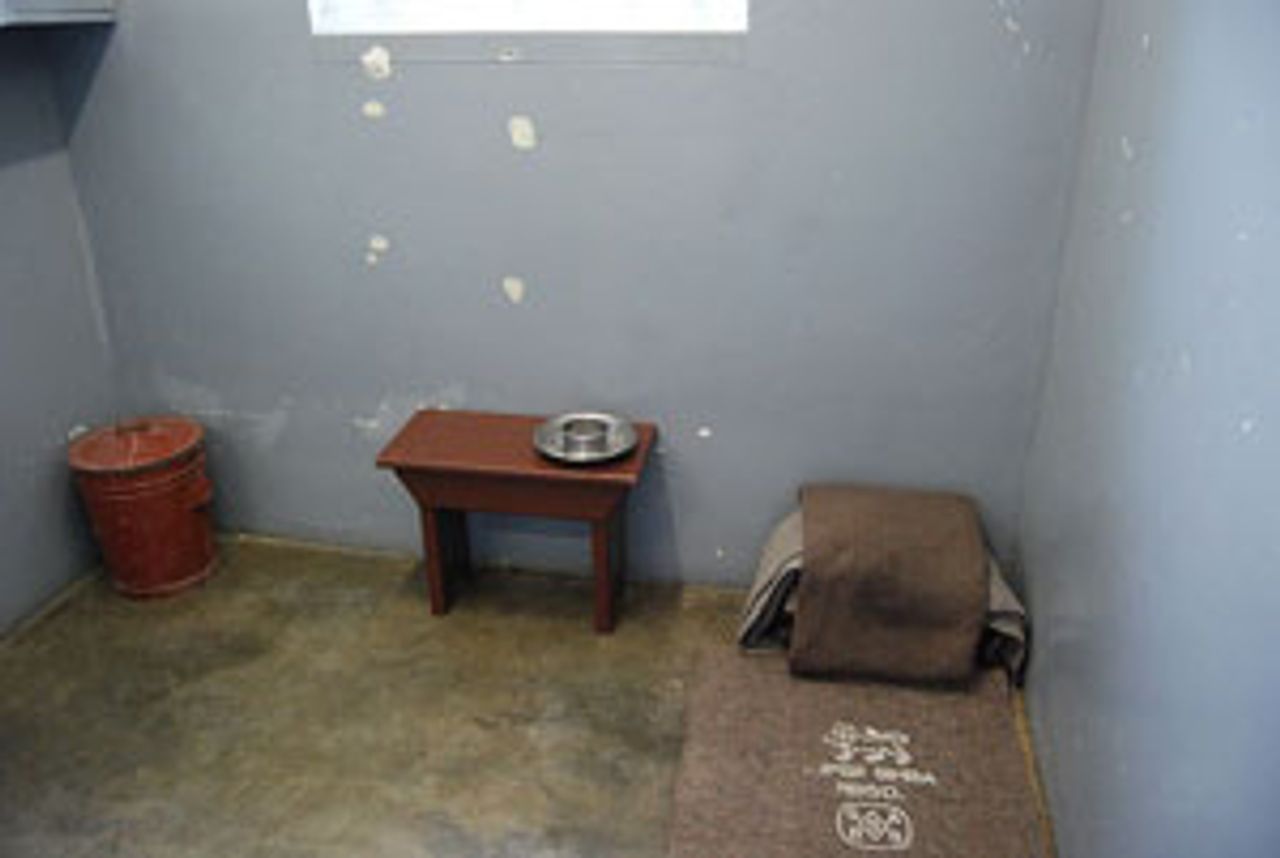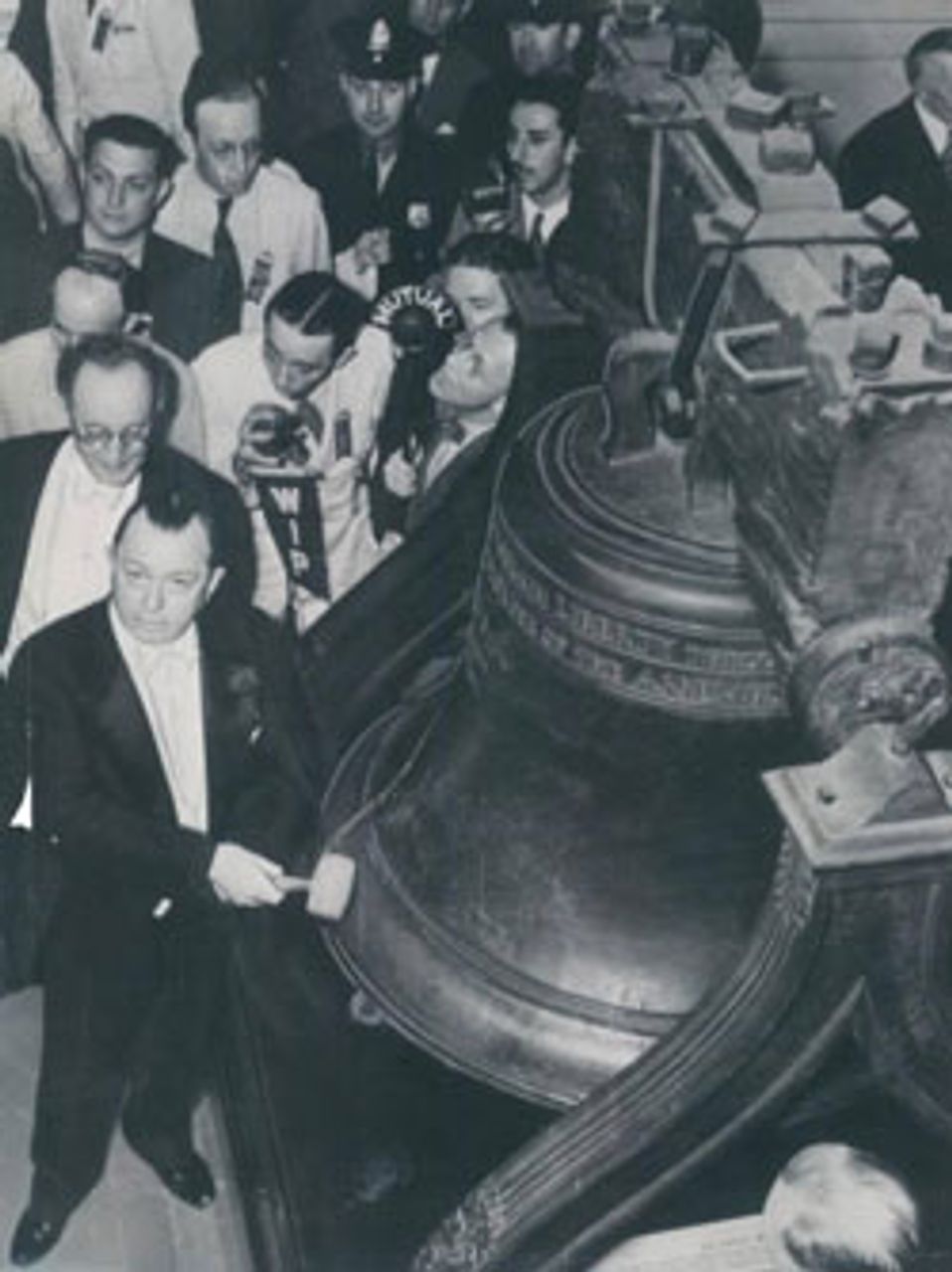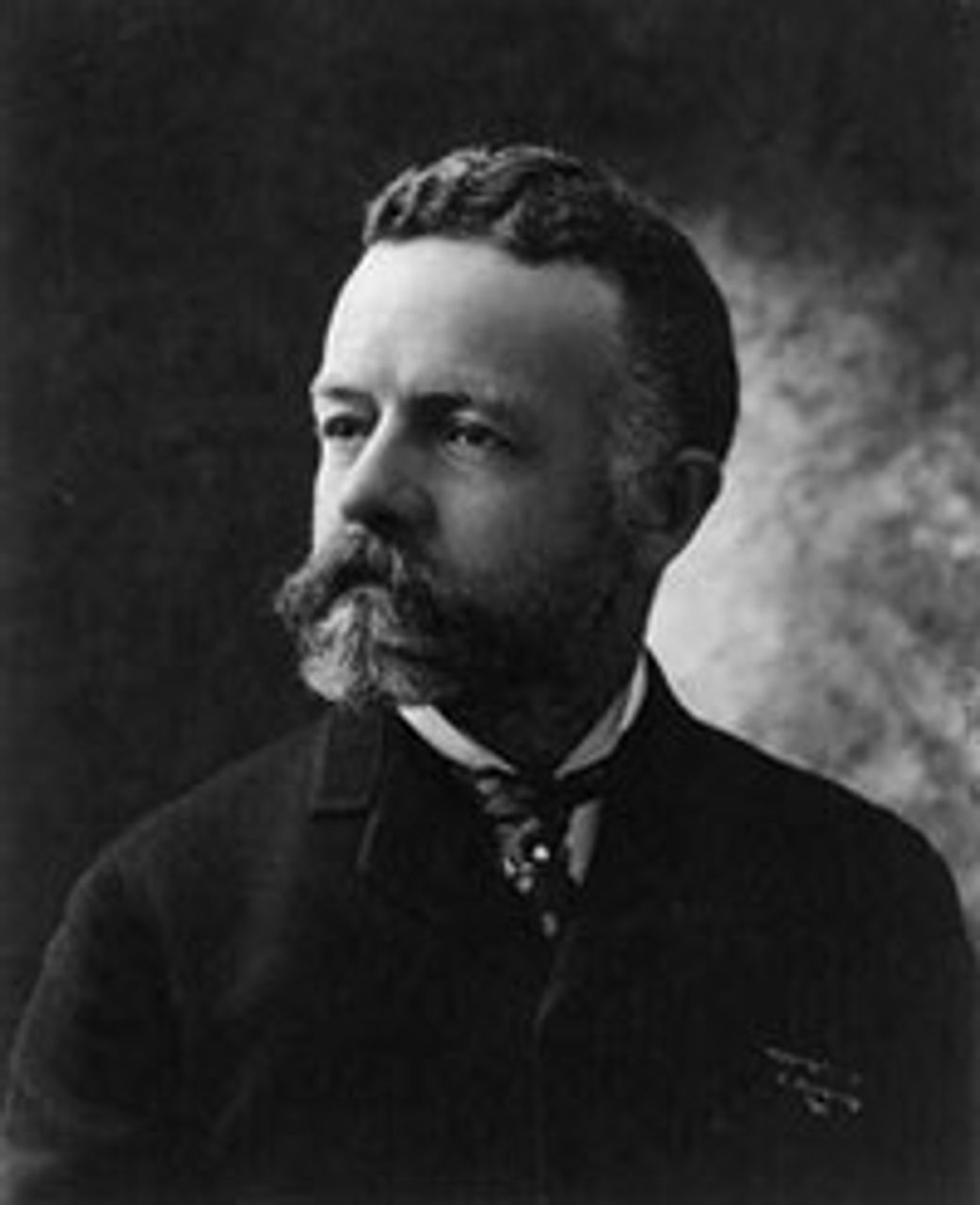This Week in History provides brief synopses of important historical events whose anniversaries fall this week.
25 Years Ago | 50 Years Ago | 75 Years Ago | 100 Years Ago
25 years ago: 400 Iranian worshippers die in Mecca massacre
 Worshippers at Mecca
Worshippers at MeccaOn July 31, 1987 during the Hajj, the annual Islamic pilgrimage to Mecca, over 400 Iranian pilgrims to Mecca were massacred by Saudi security forces. The city of Mecca, the birthplace of Muhammad, is Islam’s holiest city. Mecca was incorporated into Saudi Arabia in 1925, so Saudi security forces policed the cities’ thoroughfares during the Hajj.
According to the Iranian news agency IRNA, “A peaceful march which had the prior approval of Saudi authorities” was fired upon by Saudi security forces using machine guns and shotguns. The Saudi monarchy claimed that no shots were fired and that most of the deaths were caused by trampling as a result of a stampede. The Iranian Shiites were demonstrating against “the enemies of Islam,” including Israel, the US and the Soviet Union, when they were confronted by Saudi troops who closed off the last part of the planned route.
An estimated two thousand Iranian pilgrims were also wounded during the massacre. Survivors told of injuries from dum-dum bullets and other military ordnance.
The Iran-Iraq war had been raging for seven years and tensions had escalated between Shiite and Sunni Muslims. The speaker of Iran’s parliament, Hashemi Rafsanjani, declared, “We see the hands of the Saudi dynasty behind this crime and have no doubt that this atrocity has been committed under the direct order of the United States.”
Large crowds in Iran sacked the Saudi, Kuwaiti and French embassies.
US military provocations in the Persian Gulf continued with the reflagging of Kuwaiti tankers. A request to Britain for the support of its minesweepers was denied by the Thatcher government the day after the Mecca massacre, which cited increasing tensions and the threat of all-out war with Iran.
Early in August, the Reagan administration initiated “Operation Prime Chance,” sending US combat troops to the Persian Gulf to accompany the naval operation escorting reflagged oil tankers.
50 years ago: Mandela arrested in South Africa
 Mandela's cell at Robben Island
Mandela's cell at Robben IslandOn August 5, 1962, Nelson Mandela, a leader of the African National Congress (ANC) struggle against apartheid rule in South Africa, was arrested after being on the run for seventeen months. The arrest led to 27 years of incarceration for Mandela, most of which were spent on bleak Robben Island.
Mandela was tried and convicted of illegally leaving the country. The charges were later extended to include sabotage for his founding and leadership of the armed wing of the ANC, the Umkhonto we Sizwe (Spear of the Nation), or MK, which targeted government and military sites.
The MK’s sabotage campaign mirrored the guerilla tactics of other Third World nationalist movements, which rejected the revolutionary role of the working class. Mandela and the ANC were explicit on this point. The ANC’s “Freedom Charter,” written in 1955, called for a nationalist movement that had as its central goal the establishment of a black African capitalist class. The creation of the MK and the sabotage campaign sought to preempt the mass movement of the African working class and peasantry, which had developed rapidly before the Sharpeville massacre of 1961.
Later, defending himself and the policy of sabotage before an apartheid court, Mandela said, “[W]e believed that as a result of Government policy, violence by the African people had become inevitable, and that unless responsible leadership was given to canalize and control the feelings of our people, there would be outbreaks of terrorism which would produce an intensity of bitterness and hostility between the various races of this country which is not produced even by war.”
75 years ago: Philadelphia mayor declares state of emergency to counter strike
 S. Davis Wilson ringing Liberty Bell
S. Davis Wilson ringing Liberty BellOn August 4, 1937, the Republican mayor of Philadelphia, S. Davis Wilson, proclaimed a state of emergency in the city because of an ongoing strike by the Teamsters union. The time had come, according to Wilson, to “challenge the right of certain labor leaders to ignore laws protecting the rights and properties of our citizens.”
Mayor Wilson accused the union of breaking 250 contracts drawn up with employers. In response the Teamsters threatened to “halt everything on wheels” by bringing all the city’s 26,000 truck drivers out on strike.
The Teamsters, affiliated to the American Federation of Labor, had called the strike in late July to protest the use of hired thugs against union activists campaigning to organize drivers employed by the large contractors who hauled goods for the big grocery chains, above all, A&P.
The mayor’s dramatic proclamation forbade political meetings, whether on street corners or inside halls. Wilson claimed that milk and other perishables were disappearing, that medical provisions were running low and that coffin makers could not deliver their wares to undertakers. Speaking on the radio, Wilson said that he would ensure deliveries by placing a policeman on each of the vehicles belonging to those companies who held contracts with striking Teamster members.
Wilson appointed himself a sitting magistrate at Philadelphia City Hall for the duration of the state of emergency and took personal command of the local police force, saying he would swear in as many special police as he deemed necessary to maintain law and order in the city. About 1,500 patrol cars were ordered on the streets, four men to a car. Officers were to use their own vehicles if no official automobiles were available.
The next day the Teamsters called off the strike except against those companies driving goods for A&P.
100 years ago: US expands Monroe Doctrine
 Henry Cabot Lodge
Henry Cabot LodgeOn August 2, 1912, the US senate voted 54-4 to extend the Monroe Doctrine.
The purpose of the Monroe Doctrine, originally proclaimed on December 2, 1823, was to assert US interests in North and South America in opposition to the major European powers. The Doctrine declared that “the American continents ... are henceforward not to be considered as subjects for future colonization by any European powers.”
The US warned the European powers in 1823 that it “should view any attempt on their part to extend their system to any portion of this hemisphere as dangerous to our peace and safety,” while outlining a principle of non-interference towards existing European colonies.
Introduced by Senator Henry Cabot Lodge, Republican from Massachusetts, the “Lodge corollary” of August 1912 expanded the Monroe Doctrine to include the activities of foreign corporations and citizens. It stated, “By the word ‘colonization’ we also cover action by companies or corporations or by citizens or subjects of a foreign state which might do ... what the Monroe Doctrine was designed to prevent.”
The adoption of the Lodge corollary was largely a response to negotiations between the Mexican government and a Japanese syndicate attempting to buy land in Baja California, including the geostrategically significant Magdalena Bay. The Japanese government put an end to these moves when the corollary passed the US Senate. Lodge noted that the purpose of the corollary was both to prevent Japanese interests from purchasing Mexican land, and to “prevent it at the start so that there may be no difficulty on their part in getting out without humiliation or any sense of compulsion or retreat.”
The adoption of the Lodge corollary coincided with considerable political instability in Latin America, and increasing American intervention in the region. US marines were sent to Nicaragua in early August 1912 to put down a rebellion, while the ongoing revolution in Mexico created increasing anxiety in Washington.
